Congratulations! You have a senior cat! As cats get to be about 10 years old we start to consider them to be seniors. We need to recognize that these kitties may need extra care. Just like some people have a knack for helping elderly humans, we love seniors in my feline-only veterinary practice. So let’s discuss senior cat diseases and what we can do to keep them healthy!
FYI, this is not an all-encompassing discussion… just the basics and some fun facts!
As we all know, cats age faster than humans. I love this chart from International Cat Care comparing Cat Years to Human Years.
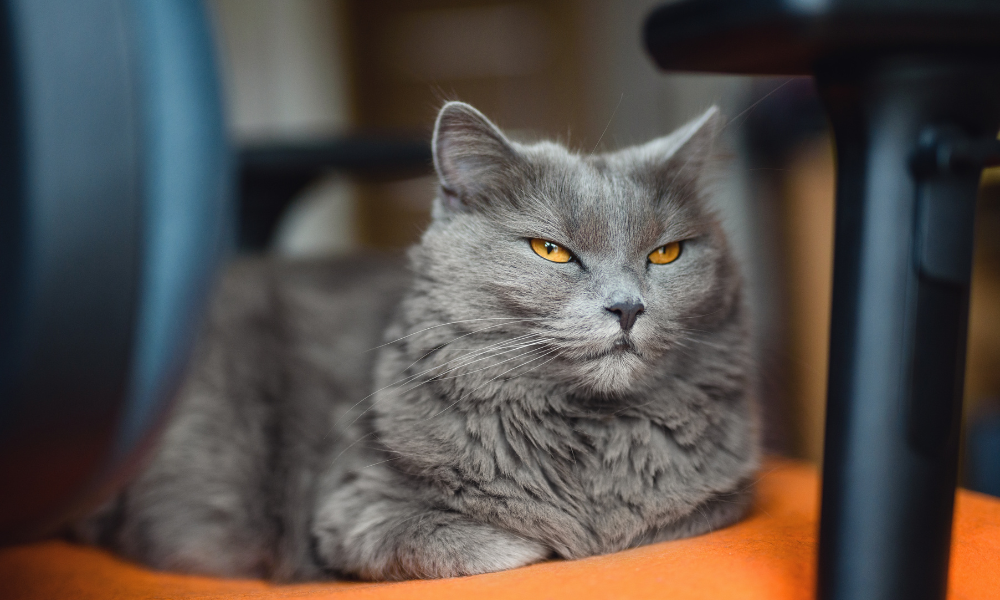
Senior Cat Diseases: Age is Not A Disease, But….(Common Health Conditions)
Since your kitty is older now, her body is aging and health problems are more likely to arise. Many of these problems are similar to what we see in people, but others are more often seen in cats. Some of the common diseases of senior cats are:
Chronic kidney (i.e. renal) disease – There are four stages of kidney disease in cats and our goals are different for each stage. With proper care, cats can live many years with kidney disease, even at the later stages!
Hyperthyroidism – One of the most common diseases I see in feline-practice. I can often predict that a cat has hyperthyroidism if he looks like he has ants in his pants! There are many treatment options for this disease (including a potential cure called I-131, or radioactive iodine) and we can usually find a solution that works best for the cat and owner!
Diabetes Mellitus – Flooding the litter box? Excessive drinking and urination are the main signs of diabetes in cats. Insulin has been the main treatment for years, but we now have an oral treatment that is an option for some cats that meet very specific guidelines.
Heart disease – Unfortunately many cats have heart disease and we don’t even know it, as they can have underlying disease with no outward signs. The opposite is also true… cats can have a heart murmur (abnormal heart sound) with no heart disease! Yes, that can be frustrating. The only way to know for sure is with a thorough cardiac workup, including an echocardiogram. However, there are screening tests that can be performed prior to an “echo.”
Dental disease – Oh boy. This is a biggie! Did you see the title above saying that age is not a disease? Senior cats often have significant dental disease that, left untreated, leads to pain and infection. We routinely anesthetize senior cats for dental work (after appropriate pre-anesthetic testing has been performed). Oh, and “non-anesthetic” dental cleanings that you may have seen at your local groomer? Don’t fall for it. These “cleanings” can actually be doing more harm than good. I love that the American Veterinary Dental College has an entire website devoted to educating pet owners on the dangers of anesthesia-free cleanings.
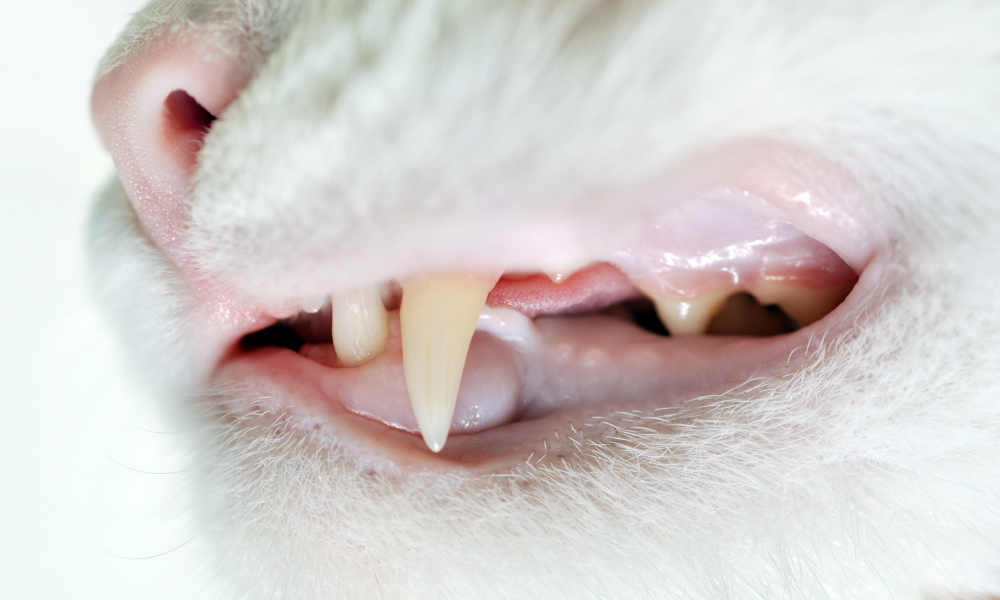
The List Continues…
Constipation (often secondary to some other primary disease such as chronic kidney disease) – Cats need water. Cats don’t drink enough. Put those two together and you get a constipated cat. Check out these tips to encourage your cat to drink more water!
Arthritis – Yes! Cats get arthritis too! But there are many treatment options! Check out this post to read more about arthritis in cats.
Sensory loss (vision, hearing) – Just like senior humans, cats may have aging changes to their eyes and hearing loss. Cataracts are not as common in cats, but if their eyes are looking gray they may have nuclear sclerosis (a cloudy lens). Make sure to leave a nightlight on for your senior!
High blood pressure (hypertension) – How the heck do you measure a cat’s blood pressure??? Well, it’s no different than when you or I go to the doctor and they wrap the cuff around our arm. It’s the same! Of course, cats can be wiggle worms so it’s important to provide a low-stress environment when testing a cat’s blood pressure. Why do we care? There can be many negative consequences of high blood pressure in cats, including “retinal detachment.” That’s a fancy way of saying that the lining in the back of their eye pops off and they suddenly go blind. That doesn’t sound good, does it? Nope. So… we want to catch high blood pressure before there is a real problem!
Cancer – As our cats are living longer nowadays, and as our diagnostic capabilities have increased, we diagnose cancer commonly in cats. But there is good news! There are many treatment options for cancer treatment and some forms can be easy to treat! If your cat has cancer, I’m sorry. Check out my post on deciding whether or not to treat your cat’s cancer.
While some of these diseases are not completely curable, most of them are manageable. This allows your cat can live out her senior years in comfort. All of these conditions are most easily treated when they are detected in the early stage. So how do we do that?
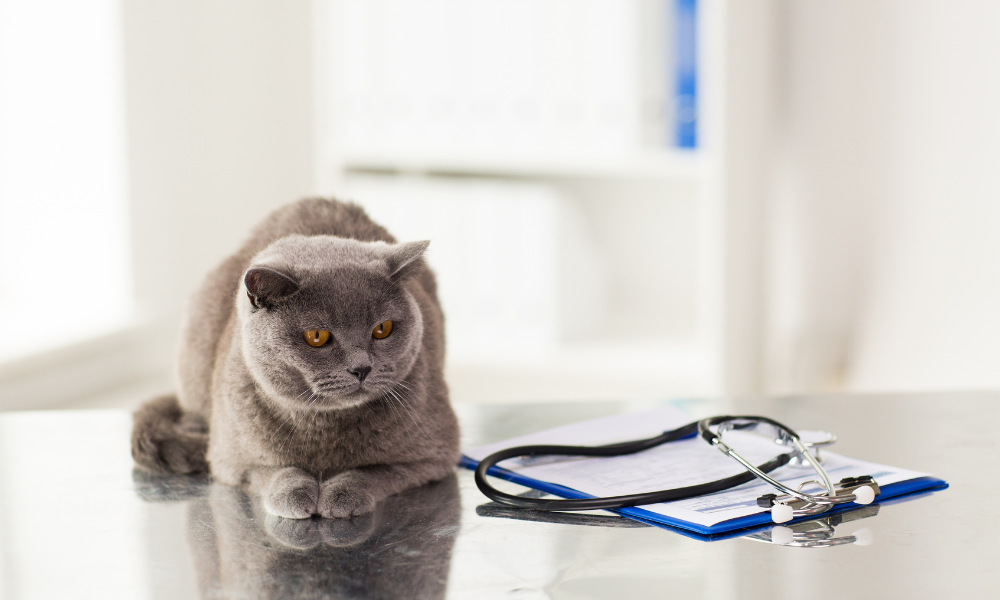
Senior Cat Diseases: Detecting Problems Early with Exams and Home Monitoring
Every day in veterinary practice I see cats that have been sick for a long time. Unfortunately, cats are infamous for hiding pain and discomfort. Many owners don’t realize their cat is sick until the disease is well advanced and they stop eating or start showing other signs.
Health check-ups every 6 months. Six months to us is actually about 2-3 years in a cat. Imagine a senior citizen not going to the doctor for more than 3 years! Your veterinarian will listen to your cat’s heart and lungs, palpate (feel) the abdomen for lumps or abnormal organs, examine the mouth, teeth, eyes, ears, skin, nails, and joints, and check her weight. They will also ask you questions about how your cat is doing at home.
At-home monitoring. This is just as important as health check-ups because problems can arise between veterinary visits. And who knows your cat better than you? Important things to monitor are:
- Weight – If you don’t have a scale of your own then you can purchase a baby scale online!
- Appetite – Not only is a poor appetite important, but an increased appetite can be classic for certain diseases.
- Water consumption – Increased drinking is a sign of kidney disease, diabetes and hyperthyroidism.
- Urination (amount and frequency) – Same as water intake!
- Bowel movements – Too firm? Too soft? Too often?
- Attitude and activity – Yes, cats sleep a lot. But they should still be interactive with you. Decreased activity can indicate a reluctance to move. Maybe they should be evaluated for arthritis?
- Hair coat, skin and nails – Senior cats often groom less. But why? Is it uncomfortable for them to get into the positions they once managed with no problem? Again, there’s that arthritis topic coming up!
- Ability to walk and jump – Notice a theme here???
- Breathing – Watch your cat breathing when she is sleeping and count the breaths in 15 seconds. Multiply by four to get her Resting Respiratory Rate. If this is increasing over time, there could be a problem.
- Mouth odor – Anything more than mild cat breath may be cause for concern.
- Vision and hearing – No, we’re not going to prescribe glasses or hearing aids. But we WILL check your kitty’s blood pressure and look in her ears!
- Behavioral changes – This is such a non-specific sign, but that’s what cats are known for. If anything just doesn’t seem right, see your veterinarian!
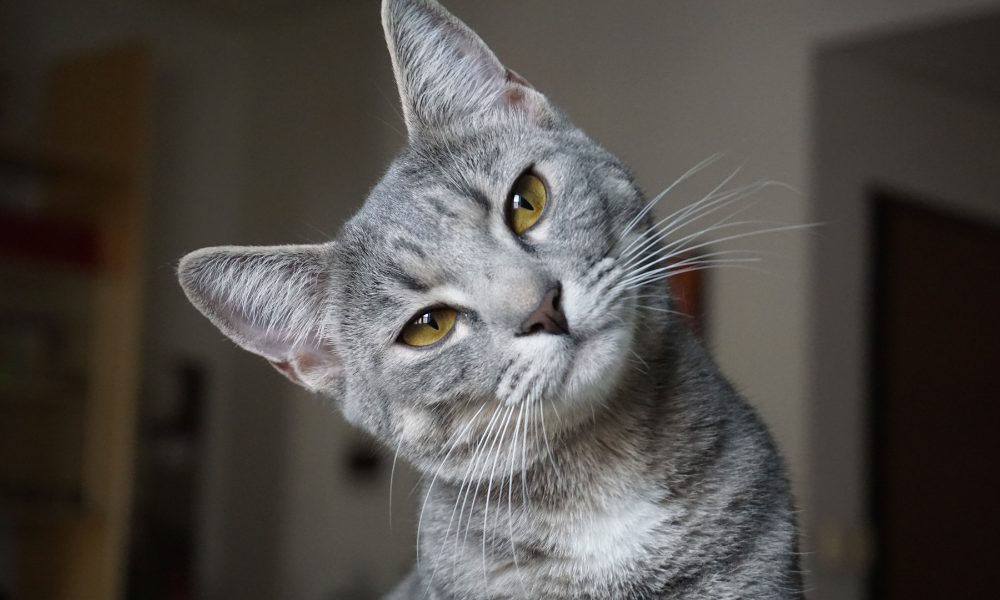
Senior Cat Diseases: Detecting Problems Early With Laboratory Testing
In my hospital, senior laboratory testing includes a complete blood count, chemistry panel, urinalysis, thyroid testing and blood pressure test. These tests can detect many diseases before they cause your cat to be sick. Based on the results of these tests, they may be repeated yearly, or more often if your cat has certain diseases such as kidney disease or hyperthyroidism.
Let’s keep your senior cat healthy and enjoying life for as long as possible. With attentive and proactive care, you can increase the quality of life for your aging cat and, quite possibly, extend her life!
My first cat, Jack, lived to be seventeen. I wanted him to make it to twenty but it wasn’t his fate. I miss him every day. Do you have a senior cat?
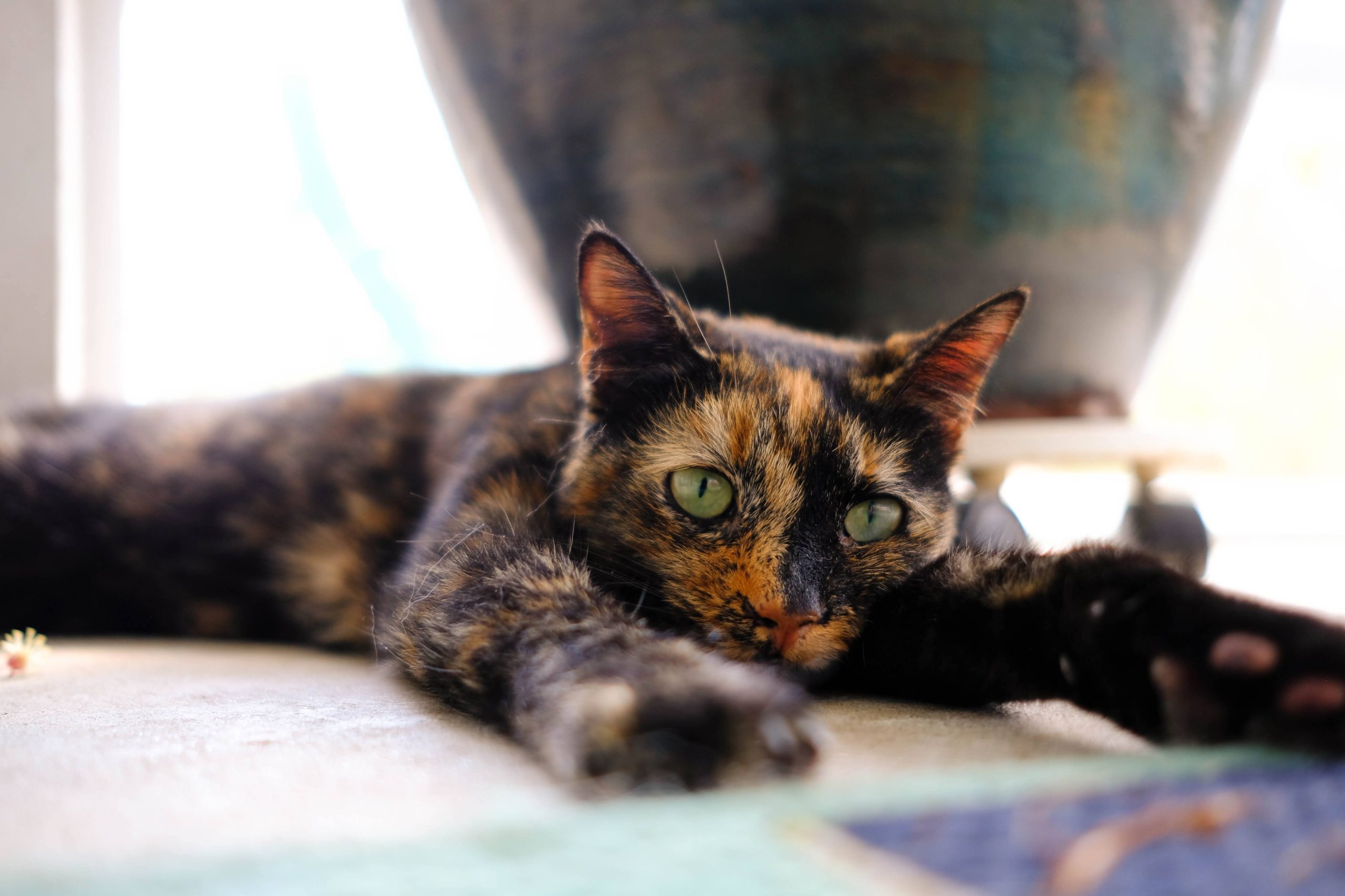
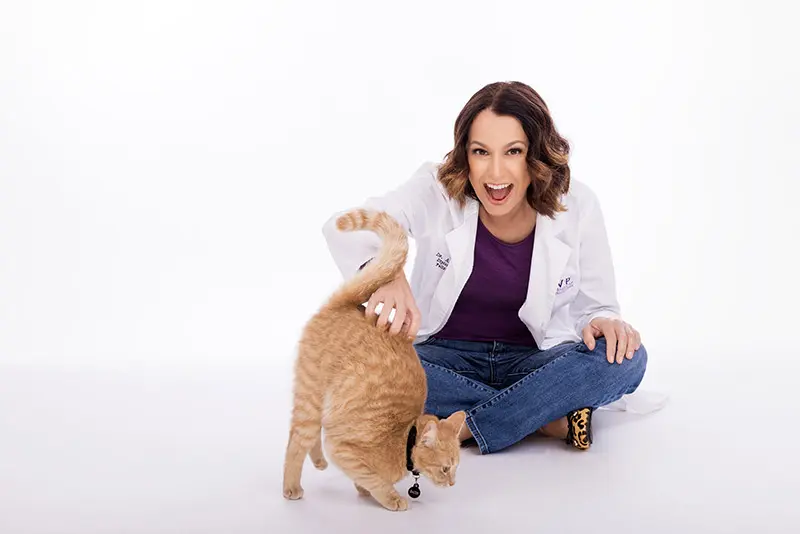











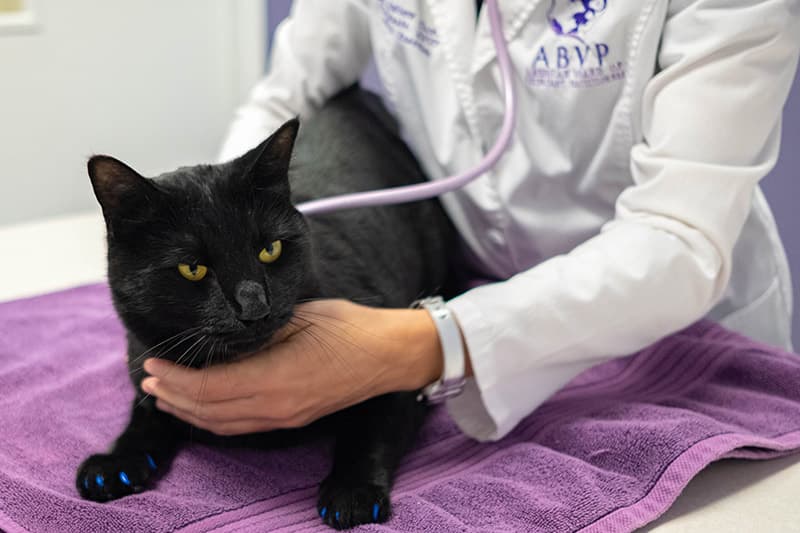
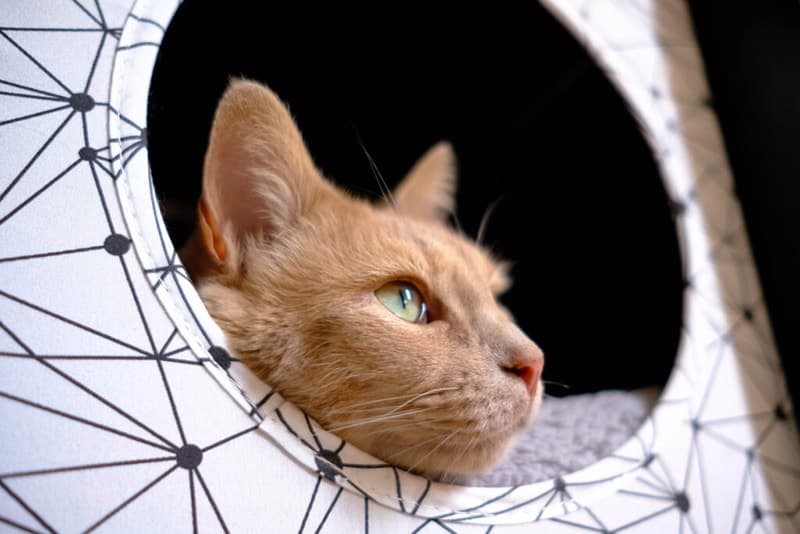

8 Responses
I can count on the Cat Care Clinic for the long lives that both cats will have,Meow and Sandie, through exams and treatments both cats may need for both to be healthy and happy. For Meow to reach her birthday at 20, her guardian, Rob, will need to reach the age of 87.
We hope you BOTH live that long! 😉
Two of my cats reached the age of 20 because of the care given at the Cat Care Clinic. I now have two 18 year olds who are under De Carter’s excellent care. We are all so grateful to have her as our veterinarian.
I love this blog!
And we love you and your cats 😉
I wish you were not so far away. Impossible to continue in your care but Dr. Ashley Siders in St. Augustine is doing a great job with 16 year old Chloe who now has diabetes, hyperthyroidism and high blood pressure but all under control with meds.
Thanks for all you and Dr. Nixon did to keep her healthy in her younger years.
Also, thanks to your staff who were always so gracious and helpful.
Thanks for your kind comments!
When your vet says your cat has pancreatic cancer how do you know when to let her go. The vet said 24 hours and she will probably be ready to go. But this morning she ate for the first time in a week and seems a little better. I look into her eyes and she loves me so much it’s hard to know what to do but I don’t won’t her to hurt. How can you tell Sad flo
Just ask yourself, does she love being a cat right now? That’s your answer.